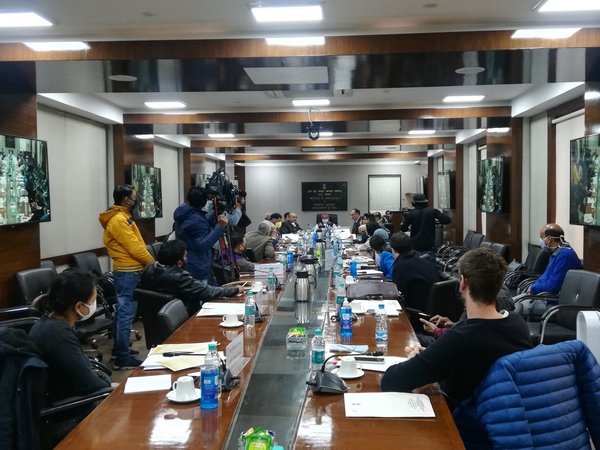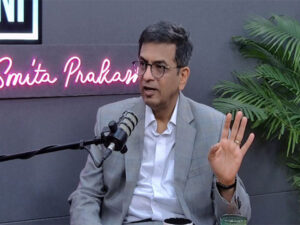
New Delhi [India], December 22 (ANI): Union Agriculture Minister Narendra Singh Tomar on Tuesday said the three farm acts brought by the central government are the biggest agricultural reforms in the country so far which will benefit farmers and strengthen Indian agriculture which is the backbone of the Indian economy.
The Minister made the remarks while interacting with members of the international media from the Foreign Correspondents’ Club of South Asia, a group of more than 500 journalists and photographers covering India, Pakistan, Bangladesh, Sri Lanka, Bhutan, Nepal, Maldives, Afghanistan and Tibet.
Tomar said that under the leadership of Prime Minister Modi the focus will be on doubling farmers’ income by 2022.
Tomar said that the Farmers Produce Trade and Commerce (Promotion and Facilitation) Act 2020 and Farmers (Empowerment and Protection) Agreement on Price Assurance and Farm Services Act 2020 and the Essential Commodities Amendment Act 2020 are the biggest agricultural reforms in the country so far.
“The reforms will provide farmers market freedom, encourage entrepreneurship, access to technology and they will transform agriculture. India being a large democracy functions on the principle of ‘sabka saath, sabka vikas, sabka vishwas’,” Tomar said, according to an official release of Ministry of Agriculture and Farmers Welfare.
During the interaction, officials of the Agriculture Ministry explained in detail the provisions under the Farm Acts and how they will benefit the farmers and lead to the betterment of Indian agriculture in the new ecosystem.
The Minister said that enacting the reform laws was “not an overnight decision” but it has gone through more than two decades of deliberations, suggested by numerous experts and recommendations by varied committees/groups.
Tomar said that MSP is an administrative decision and it will continue.
“The Modi government has shown its commitment to MSP very clearly with multiple hikes and multi-fold increase in procurement, including in the 2020-21 Kharif season. The Modi government announced MSP hikes based on the formula that farmers will get at least 1.5 times the cost of production. This was a promise made and delivered,” he said.
The Agriculture Minister also outlined the various measures and reforms undertaken by the Ministry of Agriculture and Farmers Welfare during the last six years.
“Indian agriculture has come a long way from food scarcity to food surplus. The government, therefore, had realised that pro-farmer reforms were essential to uplift the sector i.e. the backbone of the economy. Every effort is being made to create an ecosystem of farmer-friendly policies to see that the sector goes from strength to strength,” he said.
“The Pradhan Mantri Kisan Samman Nidhi (PM-KISAN) was introduced by the central government in February 2019 under which Rs 6,000 per year is transferred to the beneficiary farmer’s account per year in three instalments. Since the inception of the scheme, a total amount of Rs 95,979 crore has been released so far and 10.59 crore farmer families have benefited. A special drive has been undertaken to provide concessional credit to PM-KISAN beneficiaries through Kisan credit card,” he added.
He said that Neem Coated Urea was introduced since 2015-16 for reduced use of chemicals, improved soil health, overall increase in crop yields and reduction in the use of urea for non-agricultural purposes.
Tomar said that Agriculture Infrastructure Fund (AIF) was launched on August 9, 2020 and the aim of the fund is to provide medium to long term debt financing for investment in viable projects for post-harvest management.
Tomar also spoke about the Farmer Producer Organisations (FPOs).
“Scheme for Formation and Promotion of 10,000 FPOs with a total budgetary provision of Rs 6,865 crore has been launched on 29.02.2020. Under the scheme, formation of 10,000 FPOs across the country is targeted in five years,” he said.
The Minister reiterated that reforms have been made in the interest of farmers and will bring about a new era in Indian agriculture.
“The Government has had many rounds of talks with farmer unions and is willing to continue the dialogue on contentious issues, clause by clause, with an open mind,” he said. (ANI)

















